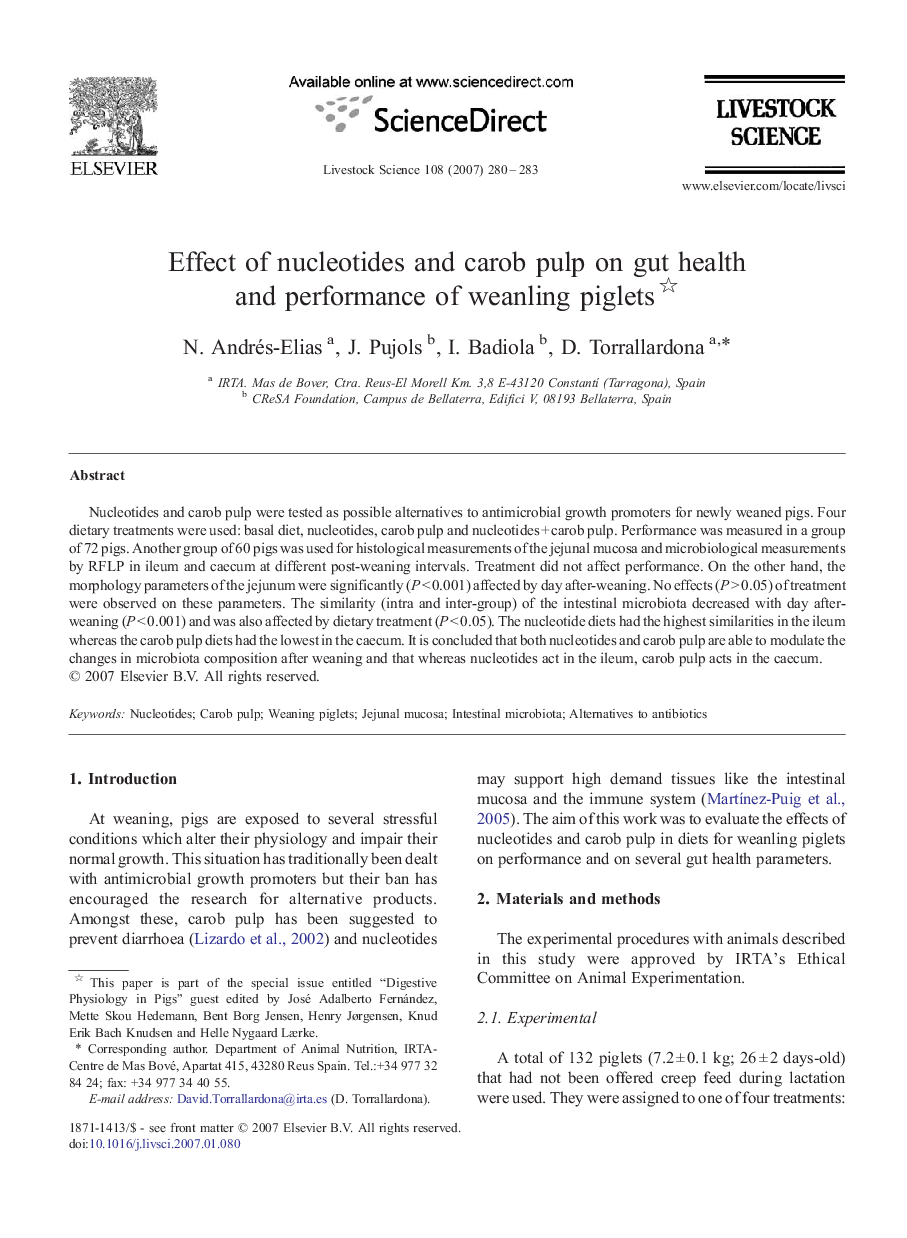| Article ID | Journal | Published Year | Pages | File Type |
|---|---|---|---|---|
| 2448808 | Livestock Science | 2007 | 4 Pages |
Nucleotides and carob pulp were tested as possible alternatives to antimicrobial growth promoters for newly weaned pigs. Four dietary treatments were used: basal diet, nucleotides, carob pulp and nucleotides + carob pulp. Performance was measured in a group of 72 pigs. Another group of 60 pigs was used for histological measurements of the jejunal mucosa and microbiological measurements by RFLP in ileum and caecum at different post-weaning intervals. Treatment did not affect performance. On the other hand, the morphology parameters of the jejunum were significantly (P < 0.001) affected by day after-weaning. No effects (P > 0.05) of treatment were observed on these parameters. The similarity (intra and inter-group) of the intestinal microbiota decreased with day after-weaning (P < 0.001) and was also affected by dietary treatment (P < 0.05). The nucleotide diets had the highest similarities in the ileum whereas the carob pulp diets had the lowest in the caecum. It is concluded that both nucleotides and carob pulp are able to modulate the changes in microbiota composition after weaning and that whereas nucleotides act in the ileum, carob pulp acts in the caecum.
